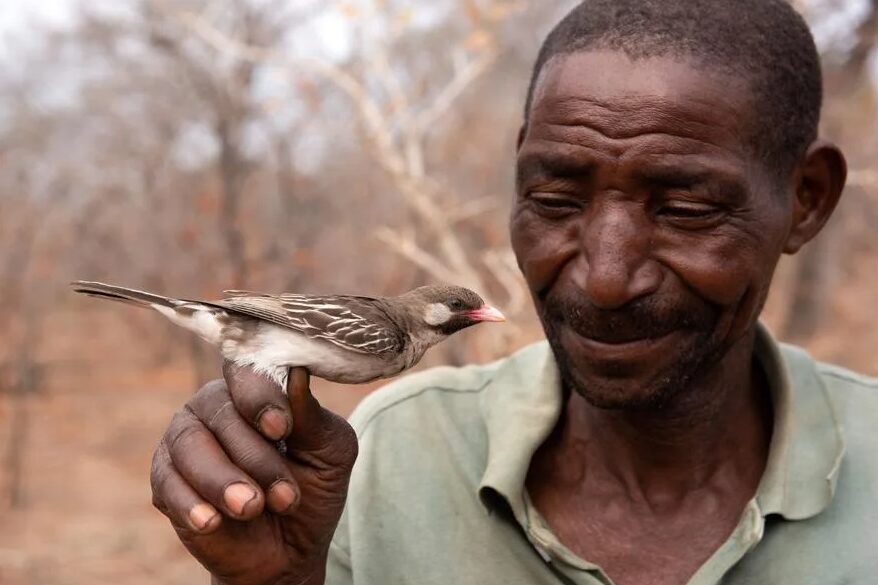As reported by the American Association for the Advancement of Science, a newly exemplified cultural coevolution between humans and honeyguides (small birds found in Africa) might just change the way we think about coexistence between humans and animals. Research shows that honeyguide birds respond to a specific call made by people by guiding them to wild bees’ nests so that humans can find honey and expose the bees’ wax which is eaten by the honeyguides.

With their eyes in the sky, honeyguides naturally know the locations of bee colonies, and humans have the skills to climb or fell trees with nests, subdue the angry bees and open their nests, exposing beeswax for the honeyguides and honey for themselves. Thus, a mutualistic relationship has emerged between honeyguides and humans, where birds exchange their knowledge of bees’ nest locations for humans’ adept skills at accessing the resources inside.
Honeyguide Birds Learn Culturally Distinct Calls Made by Honey Hunters